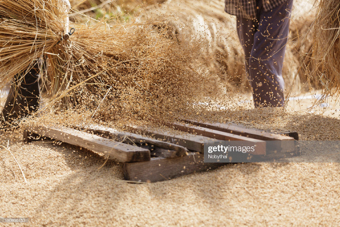
ZIRAAT RAY
Ziraat is is called mystical symbology and represents agriculture in symbolic form including the elements which form all of creation. Ratan Witteveen de Vries Feyens indicated that Murshid Hazrat Inayat Khan’s profound knowledge of human nature on the one hand and of the elements earth, water, fire, air and ether on the other hand, he created what can be termed “a mystical play,” because it represents the Divine manifestation of the human being, living, working and achieving on earth. It is a play in which the great influences of the five elements, the development of man and woman and the cultivation of the heart take place in order for the human being to develop the art of personality in a most beautiful and creative way ordained by the Divine Source of all.
A student on the Sufi Path works through multiple stages of personal cultivation where they first gather knowledge for their greater spiritual journey. Once this stage of cultivation is accomplished they move on to the work that involves their fellow human beings far and near. Yet with this stage of expanded service the work is even greater within the heart of the spiritual seeker as ones inner experience must be one of realization and application without causing harm to another. Once this second stage is absorbed and applied by the student a final stage is necessary where the student extends their service to the health and well-being of our planet and the cosmos. When this work has ripened the heart of the student sufficiently while rendering devotion through their labor, the results are sweet for all of Creation, it is at this time we feel the grace of the Divine Creator who reunites with one and all.
For further information concerning this Sufi practice and to ask about training in Ziraat, please contact, Murshida Rabia at [email protected]
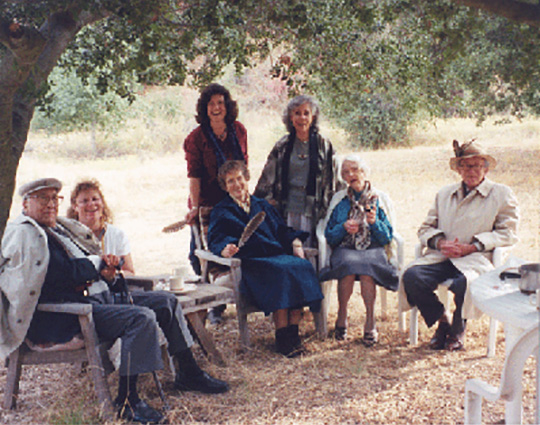
Left to Right Murshid Hidayat, Siraja Bhakti, Murshida Ratan (seated), Cheraga Tofah (standing), Murshida Rabia (standing), Murshida Aziza, Murshid Karimbaksh
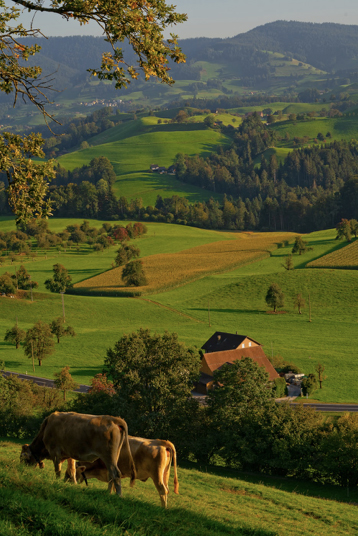
Farming the Heart
Ziraat Symbology by Murshida Rabia Perez-Chisti, Ph.D.
Contents
Forward…………………………………………………………………………………………………………………………..3
Declaration for the Protection of all Life……………………………………………………………………………4
Dedication……………………………………………………………………………………………………………………….6
The Nature of Spiritual Cultivation……………………………………………………………………………………7
Plowing……………………………………………………………………………………………………………………………9
Harrowing………………………………………………………………………………………………………………………11
Sowing……………………………………………………………………………………………………………………………13
Reaping…………………………………………………………………………………………………………………………..16
Threshing……………………………………………………………………………………………………………………….18
Garnerer…………………………………………………………………………………………………………………………20
The Farm………………………………………………………………………………………………………………………..22
References………………………………………………………………………………………………………………………24
Copyright © 2020 by Murshida Rabia Perez-Chisti, Ph.D., Sufi Universal Fraternal Institute, Orinda, California
For further information write to [email protected] or contact us through our website: https://sufiuniversalfraternalinstitute.live
Forward
When one begins to awaken to how all things are living in service to the Divine Creation, the mystery of life reveals itself and the soul begins to communicate to everything. It is with this viewpoint this text was compiled from the esoteric Sufi teachings. In the ancient of days, all actions by those initiated members of the different faiths created ceremony, ritual and prayer knowing it had a significance and deep psychological value on those that participated.
Symbolism in nature and within our thoughts, words and actions, carries within a deep meaning that has an effect on an individual. How we begin to discover these symbols arises in our consciousness when we observe and listen to the sense of beauty and harmony that is in our natural world.
A world such as ours that is precious and subtle is filled with the movement of constructive and destructive forces. When we remain outwardly objectified and ignorant of the deeper meaning within all that is living, it is a distraction that keeps us numb to the majesty of meaning and what is behind reality.
In this study of Symbology called Ziraat by Pir-O-Murhid Hazrat Inayat Khan, we find his contribution toward the discovery and significance of inner movement, found through the agricultural principles. This practice brings to light the great work of the Divine Being within us though the attentive cultivation we do with the earth.
May you be blessed in this work and may you uncover your true nature. May you find your way to the Farm.
Murshida Rabia Perez-Chisti, Ph.D
President-SUFI
Sufi Universal Fraternal Institute
January 1, 2020
Orinda, California
A declaration for the protection of all life

We the people of this earth will standup for the protection of this globe against the tyranny of political and corporate greed that chooses to destroy the living systems that protects the natural order. Whatever belief, race, creed or position in any society, we take this declaration as a Sacred Trust given to humanity, which is our right to breathe clean air, drink clean water, and protect the essential material substances of the earth as a privilege given to us by our Creator. Above all, and without exception, we will protect all living species, human beings, trees, fauna and flora, acknowledging they are part of the intrinsic web of life that sustains existence. Our promise as of this day is to stop destructive behaviors now and bring about a common good that is sustainable for all. We will stop consuming toxic poisons such as chemicalized food and drink that destroy our capacity to discern non-beneficial actions on the part of corporations and political influences. In our historic time frame, for however long human life flourishes on this planet, we will be advocates for the protection of all life and the natural order of existence.
Dedication
This manuscript is dedicated to all those who will allow the secrets of the loving heart to unfold. May you all live in love’s peace and love’s pleasure.
********************
Blessings and Gratitude upon Pir-O-Murshid Hazrat Inayat Khan and the Sufi Message teachings of Love, Harmony and Beauty that he brought to the world.
The Nature of Spiritual Cultivation
Sufi mystic, Pir-O-Murshid Hazrat Inayat Khan brought the Sufi Message of Spiritual Liberty to the West in 1910. He offered the teachings for the protection of human life and spirit. His principle Message contained subjects that addressed Esoteric Instruction, the Unity of Religious Ideals, Healing, Sisterhood and Brotherhood as well as Agricultural symbolism for working on oneself. He called this last Sufi practice “Zirrat”, which is the nature of spiritual cultivation.
Pir-O-Murshid Inayat says:…”for the mystic, nature is everything. No wonder the mystics, sages, and prophets of all ages sought refuge in nature from the disturbing influences of daily life,….they preferred the seashores to the great cities; they enjoyed watching the rising and the falling of the waves more than any show the world can produce. The cracking of the thunder, the sighing of the wind, the blowing of the morning breeze, all these convey to the mystic a certain meaning which is hidden behind them; and for a mystic they make a picture of life, not a dead picture, but a living one, which at every moment continually reveals a new secret, a new mystery to his/her heart.” (Wil van Beek, Hazrat Inayat Khan, p. 143)
The Zirrat was inspired by ancient, sacred Zoroastrian dances, which were choreographed with characteristic colors: such as found in Spring hues of: corals, pinks, sage green tones, lilac, white and neutrals; or Summer hues of: bright reds, vibrant peacock, aspen gold, and soft blue; for Fall, the colors of: amber, dark gold, black, purple, magenta and brown; for Winter the colors of: topaz, ruby, mustard, white, grey, black and indigo. They align to rhythmic steps that correspond to the season’s colors. Although simple at first sight, this attribution of color and rhythmic movement becomes a sacred practice that brings oscillating somatic integration to a person. When this practice is experienced, the individual feels a sense of unification with the seasons and nature. It is often found that vibrations from color affect physical, intellectual and spiritual consciousness and positively benefit the psyche.
The six stages of Zirrat develop a person’s natural Divine qualities through the work found in the agricultural processes and these are: Plowing, Harrowing, Sowing, Reaping, Threshing and Garnering. Each practice has a particular effect on the nature of body, mind, emotions and most importantly, moral responsibilities to one’s self and all beings, creatures, and the planet.
The practice of Zirrat helps us understand how to toil and labor for the lessons that come in the cycles of the seasons, the effect of the color vibrations on our disposition during the day with the effects of the sun, and at night with effects of the moon and stars where we evolve more deeply into embodied spiritual practitioners. Thus plowing as the first principle of awareness is an agricultural step that all devotees understand as being a primary culmination toward spiritual harvest.Then, symbolically, the first area that a spiritual seeker must develop is plowing the field of the heart followed by the field of the mind. Plowing is based on the secrets of how to break open furrows on the heart, uprooting any self-inflicted wounds that disturb the evolution of one’s external consciousness. This primary plowing will open up deeds of beneficence that counter the rise of self-destructive behaviors. Many lessons are learned from deep wounding, yet it is the spiritual initiates’ goal to become real cultivators of these difficult lessons as they can bloom into fresh insight, selfless service toward others as well as toward the planet.
Plowing
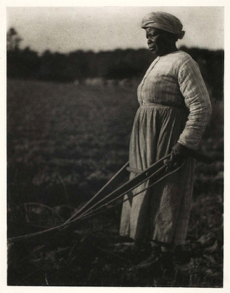
(Photo by William Clift, 1983, Doris Ulman)
As one begins to plow their heart’s field, one activates the techniques that can be shared with others who have similar experiences and difficulties. This reaches out to the world as cooperation, understanding, and support. Although there might be differences in the destructive causes of another person’s heart field, the same wisdom can be born from cultivation of the plowed heart, finding there, the Divine Essence that rises up as wisdom. Refining thought and the commitment to seek wisdom, requires from us deep psychological insight that illuminates. Zoroaster indicated, “every word, thought and deed”, will affect oneself, our surroundings and all life. Plowing, therefore, requires a commitment “to act” and to toil with joyfulness for the opening of new life to arise. In Sufism this act is celebrated by calling to the joy of the Creator the Wazifa, “Ya Khaliq”.(Oh Thou, the eternal possibilities that come from You).
The second and most valuable development for progression on the spiritual path is to acknowledge and honor the elemental aspects of our human composition. The mystical context of our elementals leads us to the Creator and the composition of all creation, as all are a part of these elementals: Earth, Water, Fire, Air and Ether. The elements are present in all living beings and things and as the Declaration for the Protection of All Life states above; vigilance is necessary concerning any destructive behaviors that will damage or risk harming these foundational aspects of life. Therefore the mind, the imagination, the accumulation of desirable and undesirable impressions need willpower to uproot and clear the surface for open inspection. The very important work of plowing is self-analysis.
Every part of the substance of self must be made straight, and all old roots, rocks, sticks are brought to the surface for removal. Before fresh seeds can be planted, it is best if left empty and bare to the purifying rains and winds of the Divine Creator. Pir-O-Murshid gives us these words of encouragement.
“Nevertheless, of his/her task one shall not weary, for in the heart of the plow-men and plow-woman is the joy of the fresh beginning and the labor of one’s hands shall be blessed. In the solitude of one’s toil they shall not feel alone, for in one’s soul is heard the song of return. Blessed is the person, who thus prepareth their field. Verily his/her feet shall tread the path of wisdom.” (Zirrat Paper, p.25)
Harrowing

(Website: fotolibra.com)
In harrowing, there is still work in smoothing out the surface after the furrows of plowing have been accomplished. In plowing, many of the undesirable elements are taken away but, still there is a need to go deeper into the roots of feelings, sentiments, and those aspects of pain lurking in the subconscious mind. Conceit, hatred, malice, prejudice and particularly fear which causes one to act rudely through insolent behavior, harsh words and crude gestures are remaining in the consciousness and need attention and removal. Pir-O-Murshid Inayat’s words powerfully indicate the inner thought record in the whole of manifestation.
“The whole of manifestation in all its aspects is a record upon which the voice is reproduced, and that voice is a person’s thought. There is no place in the world, neither desert, forest, mountain, house, town, nor city, where there is not some voice which, once engraved upon it, has continued ever since. No doubt every such voice has its limit: one voice may continue for thousands of years, another voice for several months, another for some days, another for some hours or moments. For everything that is created, intentionally or unintentionally, has a life; it has a birth and so it has a death; in fact, it has a beginning and an end.” (Sufi Message Vol II, Cosmic Language)
Small rocks, roots and sticks that impinge on the heart’s pure surface will only return again and again if not attended to in the harrowing process. Pir-O-Murshid Inayat indicates, “The human mind is likened to the treasure buried in the ground: it needs digging, and when all earth and stones, that cover the treasure, are removed, then the treasure manifests to view.” (Zirrat Paper, p. 35). The harrowing process is a refinement of the plowing procedure that started when the heart was ready for the great work. And that great work is, to become one’s own self. It takes great strength in smoothing the surface. In Sufism it is called, “Ya Matin” the sacred Wazifa meaning, (Oh Thou, the Forceful One.)
Here the process of harrowing is one’s commitment to continually hold fast to the labor necessary for the work of looking within which is a courageous act of spirit. It is not easy to labor and refine the vision of one’s true essence, but it is a necessary aspect for those in the Sufi Mystical Schools. Pir-O-Murshid Inayat comments, “… that the first step of the mystic is to see the side which is before one such as daily life, and his/her second step is to look at the side which is within. The first view, the minor development, is the view of the adept; the second, the major development, is the view of the mystic.” (Sufi Message Vol. XI, Philosophy, Psychology, Mysticsm, Aphorisms, p. 205)
The understanding of life arises when one experiences hardships that sometimes crush the heart and shed the broken pieces that clog the compassionate ability that connects one to all beings. When the heart is broken open by some experience of pain, it is that which prepares the ground of the soul, which is called harrowing.
Sowing

Every aspect of the plant, roots, stem, leaves and fruit are all in the seed. All these aspects and more are in this little round pod. Pir-O-Murshid Inayat indicates how this is similar to the whole culmination of creation, as the whole universe is manifested in the same way. Only when the field is cleared of all obstacles will the seeds quicken and be nourished by the fertile soil. The matured plants will feed the hungry that seek the sustenance of life through the deeper realization that comes by caring for the earth. The ecological systems that have graced humanity from its origins of creation have come through the gift of the Sustainer as expressed in Sufism in the Wazifa “Ya Razzaq” (Oh Thou who is the Divine Sustenance).
This is also an idea expressed in the Christian Bible, where it is said that God created human beings in His Own Image. It is the same as if the seed out of which the plant comes were to say, “out of my own image I have created the seed which will come forth from the heart of the flower. I shall appear as many, although in the beginning I am one grain.” This idea Pir-O-Murshid Inayat explains why it is said that humanity was created in God’s image, when the whole of manifestation, the whole of creation has come from God. (Sufi Message Vol. VIII, Sufi Teachings, pgs. 123-124)
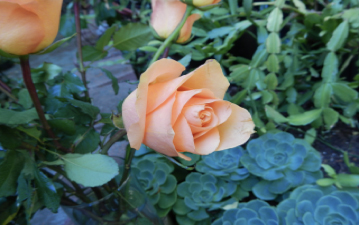
(Photo by Robin Laflamme)
Pir-O-Murshid Inayat equates the unfolding manifestation of humanity’s soul to the heart of the rose, he says:
“The soul can be likened to the rose; as a rosebud blooms, so the soul unfolds itself. For the rosebud to bloom, five conditions are required: fertile soil, bright sun, water, air and space; and the same five things are required for the enfoldment of the soul. As a fertile soil is required by the rosebud in order to grow, so education in the spiritual ideal should be given to the child from the moment it is born.
When a child is deprived of that most important education in its childhood, then the soil is taken away from the roots of the rose. The water that nourishes the rose is the love element. If that element is absent from anyone’s life, however great his/her intellectual knowledge and his/her desire to seek after truth, one will still remain backward. Unfortunately this element often seems to be missing in cultural life. A learned person will say that it has no place in the world of reason, and thus the person separates the outer learning from the religious ideal which is called the love of God.
What is it that partakes the part of the sun in the life of a human being, as the sun takes part in the growing of the rose? It is intelligence. Everyone may not seem to be intelligent, but the soul itself is intelligence. When the intelligence is covered by a mist of impressions, of ideas of this earth, that intelligence becomes drowned in something, buried under something. When it is discovered, then it is as bright as the sun. The mission of Buddha was mainly intended for this purpose. All that Buddha wished to teach his disciples was to discover that pure intelligence, which is above all reasoning and which is the essence of all reason.
This idea can also be found in Judaism. In Kabbalah, the third element of the human soul is the Neshamah, or higher soul that distinguishes humans from all other life forms. It is related to the intellect, and allows human beings to have awareness of the existence and presence of the Divine. It is the same impulse found in Hinduism when we see the word Prajna in Sanskrit or Panna in Pali, as it means wisdom, which is insight into the true nature of reality.
The place that the air occupies in the growth of the soul is this: air is symbolical of the inspiration, which comes to the heart that is prepared for it. And it is not by outward learning but by what one learns through inspiration that the soul is raised towards its enfoldment. The space, which is needed around the rose-bush in order to let it grow, means symbolically a wider outlook in life. A person may live hundreds of years, but with a narrow outlook, one will never see the light.
In order to see life clearly, the outlook should be wide. There is much to fight with in life in order to keep our outlook wide, for the nature of our life in the world is such that it drags us down and places us in conditions where we cannot but be narrow. A great person is not great because of their merits, their qualities or reputation; the surest proof that a person can give of their greatness is their vast outlook.
How can one recognize this development of the soul in which the purpose of life is fulfilled? What are its indications, its signs?
The soul becomes like a rose, and begins to show the rose quality. Just as the rose consists of many petals held together, the person who attains to the enfoldment of the soul begins to show many different qualities. These qualities emit fragrance in the form of a spiritual personality.
The rose has a beautiful structure, and the personality, which proves the enfoldment of the soul has also a fine structure: the manner, in dealing with others, in speech, in action. The atmosphere of the spiritual being pervades the air like the perfume of the rose. The rose has seeds in its heart, and so the developed souls have in their hearts that seed of development, which produces many roses.
The rose blooms and fades away, but the essence that is taken from the rose lives and keeps the fragrance that the rose had in its full bloom. Personalities who touch that plane of consciousness may live for a limited time on earth, but the essence which is left by them will live for thousands of years, always keeping the same fragrance and giving the same pleasure that the rose gave.” (The section in italics is extracted from The Sufi Message Vol. VIII, Sufi Teachings, pgs. 295-297)
Reaping

(Website: Deposit Photo)
“Life is a field and we were all born to cultivate it. And if we know how to cultivate this field, we can produce anything we like. All the needs of our efforts can be produced in this field. All that our soul yearns after and all that we need it to be, is received from this field, if we know how to cultivate it and how to reap the fruit”. (Kabir)
Pir-O-Murshid Inayat indicates, that a high mind will always reflect and attract higher thoughts; from wherever it comes it will come to them. It will be attracted to the mind of the ground of which is prepared for it. An ordinary mind is attracted to ordinary thoughts. For instance, a person who has a habit of criticizing people is very eager to open his/her ears to criticism, because that is the subject which interests them, their pleasure is there. They cannot resist the temptation of hearing ill of others. When that behavior does not belong to a person it is like a foreign note to their ears; they do not want to hear it. Their hearts have no pleasure in it; it wants to throw off anything that is inharmonious. Therefore, the mind-world is humanity’s kingdom and queendom; it is their property. Whatever they sow, that they reap. To the pure and exalted souls for whom every word breathes the name of God, whatever the property is used for, that is what will be produced in it. (Sufi Message Vol. II, Cosmic Language, The Power of Word, p. 159 and Thought and Imagination, p. 125.)
Therefore, reaping is a form of gathering up the external and internal aspects of us. As a person looks for the best opportunities, thoughts, words and deeds, and shows strength of purpose in their activities by not losing patience with themselves and others, a faith arises that illuminates the intuition and because of that watchful gathering up, self-respect also takes the lead and exposes a more expanded point of view.
Pir-O-Murshid Inayat encourages us to seek what our soul longs for and not get distracted by those comforts that are not satisfying. He says, “ But if the opportunity is only studied in order to make the best of life by taking all that one can take and by being more comfortable, that is not satisfying. We must enrich ourselves with thought, with that happiness which is spiritual happiness, with that peace which belongs to our soul, with that liberty, that freedom, for which our soul longs; and attain to that higher knowledge which breaks all fetters of life and raises our consciousness to look at life from a different point of view.” In Sufism it is called forth in the Wazifa, “Ya Rafi” (Oh Thou, who is The Exalter). Once a person has realized this opportunity, they have fulfilled the purpose of their life. (Sufi Message Vol. VI, The Alchemy of Happiness, p. 117)
It is said by the great Sufi Masters, there is a great treasure of blessings within oneself and there is a vast treasure of blessings outside oneself, and when there is an exchange between one’s own treasure and the treasure outside, then one’s life has borne the fruit for which one’s soul was born. There comes a time in the life of the fruitful souls when every moment of their lives bear a new fruit, just like a plant which bears fruit at all times of the year. (Extracted from the Gatha Paper, No. 2, 2, on the subject Nakshi Bandi).
“Life is a field and we were all born to cultivate it. And if we know how to cultivate this field, we can produce anything we like. All the needs of our efforts can be produced in this field. All that our soul yearns after and all that we need it to be, is received from this field, if we know how to cultivate it and how to reap the fruit”. (Kabir)
Pir-O-Murshid Inayat indicates, that a high mind will always reflect and attract higher thoughts; from wherever it comes it will come to them. It will be attracted to the mind of the ground of which is prepared for it. An ordinary mind is attracted to ordinary thoughts. For instance, a person who has a habit of criticizing people is very eager to open his/her ears to criticism, because that is the subject which interests them, their pleasure is there. They cannot resist the temptation of hearing ill of others. When that behavior does not belong to a person it is like a foreign note to their ears; they do not want to hear it. Their hearts have no pleasure in it; it wants to throw off anything that is inharmonious. Therefore, the mind-world is humanity’s kingdom and queendom; it is their property. Whatever they sow, that they reap. To the pure and exalted souls for whom every word breathes the name of God, whatever the property is used for, that is what will be produced in it. (Sufi Message Vol. II, Cosmic Language, The Power of Word, p. 159 and Thought and Imagination, p. 125.)
Therefore, reaping is a form of gathering up the external and internal aspects of us. As a person looks for the best opportunities, thoughts, words and deeds, and shows strength of purpose in their activities by not losing patience with themselves and others, a faith arises that illuminates the intuition and because of that watchful gathering up, self-respect also takes the lead and exposes a more expanded point of view.
Pir-O-Murshid Inayat encourages us to seek what our soul longs for and not get distracted by those comforts that are not satisfying. He says, “ But if the opportunity is only studied in order to make the best of life by taking all that one can take and by being more comfortable, that is not satisfying. We must enrich ourselves with thought, with that happiness which is spiritual happiness, with that peace which belongs to our soul, with that liberty, that freedom, for which our soul longs; and attain to that higher knowledge which breaks all fetters of life and raises our consciousness to look at life from a different point of view.” In Sufism it is called forth in the Wazifa, “Ya Rafi” (Oh Thou, who is The Exalter). Once a person has realized this opportunity, they have fulfilled the purpose of their life. (Sufi Message Vol. VI, The Alchemy of Happiness, p. 117)
It is said by the great Sufi Masters, there is a great treasure of blessings within oneself and there is a vast treasure of blessings outside oneself, and when there is an exchange between one’s own treasure and the treasure outside, then one’s life has borne the fruit for which one’s soul was born. There comes a time in the life of the fruitful souls when every moment of their lives bear a new fruit, just like a plant which bears fruit at all times of the year. (Extracted from the Gatha Paper, No. 2, 2, on the subject Nakshi Bandi).
Threshing
(Website: GettyImages)
The symbolic purpose of threshing is found in the art of learning to discriminate between that which is natural and that which is unnatural, what is necessary for one’s evolution and what is unnecessary, what brings sorrow and what brings happiness. No doubt there is great difficulty in the act of discriminating what is right and what is wrong, but by standing in the Creators all-powerful light against one’s worst enemy, “the ego”, one promotes strength and energy within one’s character. In Sufism the Wazifa that guides one toward maintaining strength of purpose is found in, Ya Muqtadir, (O Thou the Creator of all power).
Pir-O-Murshid Inayat offers guidance on how to attain a discerning character by saying, “Sufism may be related to the Islamic word Saf, which means purity. Purity is attained by purifying the soul from all foreign attributes that are acquired there by discovering its real nature and character. Then he offers this example:
“Pure water means water that is in its original condition; if it happens that there is sugar and milk in the water, then the one who wishes to analyze it will separate the elements, and will try to see the water in its pure condition. Sufism, therefore, is the analyzing of the self, the self that has for the moment become a mixture of three things, of body, mind and soul. By separating the outer garments of the soul the Sufi discovers the real nature and character of the soul, and in this discovery lies the secret of the whole life.” (Sufi Message Vol. I, The Soul, Whence and Whither?. 161)
Threshing then is a symbolic way of learning how to separate and discern elements of the self through life experiences. One begins to understand what is useful to the development of the soul purpose and what is not useful. “Until you have put the obstacles far from you, the Light will not shine within the home of your heart”. (Mahmud Shabistari, The Garden of Mystery, p,46). Those experiences that one gathers on the way as riches for their evolution toward greater harmony and happiness and what hinders that harmony and happiness purifies the state of consciousness. One experience is more difficult, the other is not.
Here, the objective of the will comes into form through the phenomenal part of the unconscious that becomes the acting factor of the soul’s plan or the higher blueprint of the soul’s purpose. Then, of course, one asks oneself, “Am I strong enough to meet the exigencies of life’s tests?” On this question, there is a simple answer given by Pir-O-Murshid Inayat,
“Many times it is a great puzzle to choose between two things. Very often one thing is at hand and the other further from reach. It is a puzzle to renounce the one or how to get the other. Very often human beings lack will power to renounce. It does not require only discrimination between the two things, but also will power to do what we think to do. It is not an easy thing for a man or a woman to do in life as he/she wishes to do. Think how difficult is life! When we ourselves cannot listen to ourselves, how difficult then for others to listen.” (Extracted from the Social Gathekas, on Renunciation).
This important simple lesson takes us into the greatest work, which is listening to our deep inner voice from which all experiences can be heard, understood and honored. When we know ourselves and have the strength to continue on in the learning process with faith and vigor, we become the Garnerer of our soul purpose and reason why we embodied.
Garnerer
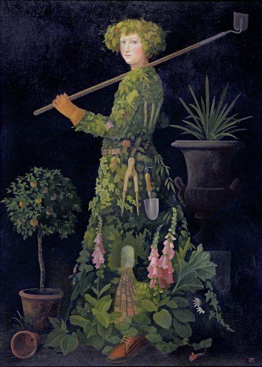
When one becomes the Garnerer, finally all experiences, thoughts, and feelings are absorbed and taken into the consciousness. All experiences of suffering, pain, joy and happiness are absorbed into the psyche and we know beyond a shadow of a doubt, through the discerning process of threshing, how to understand these impressions arising from our lives and the purpose for which they were experienced.
Pir-O-Murshid Inayat indicates, “This explains the meaning of heaven and hell. We experience heaven or hell in this way each day of our lives, and our heaven or hell depends on what impressions we allow ourselves to store in our mental plane.” (Sufi Message Vol. V, Spiritual Liberty, p. 215)
The listening process helps one work with the mental plane. We discern what impressions are the most beneficial for our lives. Great Sufi masters, poets, and musicians have offered us teachings of moral truths, beauty and harmony to show us the way to favorable choices. They knew life was an arena where they gathered true, beautiful and harmonious qualities allowing them to express their deeper learning and assimilation from everyday life. “When you work you are a flute through whose heart the whispering of the hours turns to music.” (The Prophet by Kahlil Gibran, p.25)
When poets and artists offer their experiences through their art, they themselves became a symbol of the Garnerer. “Boil up, boil over, for we are an ocean of poetry, have no other work left, save the deeds of love in this earth, in this earth, in this holy field no more seeds shall we sow, save the seeds of love.” (Diwan-e-Shams , Ghazel 230, lines 1-
4)
What they have gathered through their storehouse of knowledge became nothing less then a gift of pure thankfulness expressed so clearly in the Sufi Wazifa, “Ya Shakur”-(Oh Divine Thankfulness). Meister Eckhart, a 12th Century Christian mystic said, “The greatest spiritual practice is gratitude.” All life gives praise and thankfulness for the Ultimate Source that flows through all of reality. How we understand that Source, how we garner the beautiful and good becomes like the bee that tastes every flower to make the sacred honey. How we deal with the weeds or the destructive inclinations is the method of garnering that promotes the greatness of the soul to become a real farmer, who only sees with eternal thankfulness the benefit and beauty seeded in the grounds of the Farm for all to behold and to be nourished. “What hurts you, blesses you. Darkness is your candle. Your boundaries are your quest.” (Like This, Rumi, tr. Barks, p. 45)
The Farm
(Photograph by Ricardo Gomez Angel)
Pir-O-Murshid Inayat’s words regarding the symbolism of the Farm connects us to the understanding as to why all the principle actions of Plowing, Harrowing, Sowing, Reaping, Threshing and becoming the Garnerer are necessary for the development of the soul on the spiritual journey.
Pir-O-Murshid Inayat’s words regarding the symbolism of the Farm connects us to the understanding as to why all the principle actions of Plowing, Harrowing, Sowing, Reaping, Threshing and becoming the Garnerer are necessary for the development of the soul on the spiritual journey.
“Life for me is a place where every person is given a piece of ground, one person a larger piece, one person a smaller, and they are told: ‘Now you have the ground and there are the seeds of grass, weeds, corn and good fruit, flowers, and poisonous fruits. Sow what you like, sow all that interests you and produce, or do not sow at all, but still the ground belongs to you.’ So is the life of an individual in this world, every person has their Farm. There are also some who will sow thorns, and when the thorns have sprung up and become painful, they say: ‘Why did we do this, or say: I am tired of this Farm, I wish I were not there.’ They wish they could be taken away from that Farm and placed in a Farm where flowers and fruits are already growing without having to take the trouble of sowing. But this is against the law. Human beings are interested in living on their Farm and all through life they are sowing what will be their hereafter. Heaven and hell are not made ready for a person after their life on earth. The same Farm that is given to a human being, is hereafter turned into heaven or hell. So an individual must build heaven now on the Farm that is already their possession. They must put into it all that they like and love and remove from it all what is hurtful, harmful or disagreeable, making now, while on earth, their Farm of the nature of heaven, which in the hereafter will culminate into perfect heaven.” (Sufi Message Vol. VIII, Sufi Teachings, p. 77)
In becoming conscious of the process to know oneself by understanding the responsibility to work toward the realization and the purpose of the whole of life, we become leaders in service to the Great Cause. That Cause is found in rooting out the weeds of illusion, clearing away all undesirable tendencies, sowing the seeds of wisdom hidden in all of creation, reaping the joy of the truth found in what is lasting, and separating what is useless to that which is beneficial. Maulana Jelaluddin Rumi says, “Whatever you break finds itself more intelligent for being broken. Every second a new being stands in the courtyard of Your chest like Adam, without a father or a mother, but the beginning of many generations to come.” (Rumi, Like This, tr. Barks, p.44)
When one loves nature and feels gratitude for all that abides in the beauty of the Farm, then, one has become a mirror of the Divine. The Message hidden in Ziraat is the symbol of the process of cultivation that builds the Art of Personality and enhances Moral Culture of the individual. These developmental principles guide a person home to their soul.
“O Thou, the seed of my life’s plant,
Thou wert hidden so long in my budlike soul:
But now Thou hast come out, o my life’s fruit,
After the blossoming of my heart.”
(Hazrat Inayat Khan, Sayings 546)

References
Sufi Message Volumes are a collection of lectures and teachings that Pir-O-Murshid Inayat gave during his many travels around the globe. Some of the publications have been reprinted. The Volumes and dates stated below are those referenced in this text.
Vol. I-The Way of Illumination, The Inner Life, The Soul Whence and Whither, The Purpose of Life. Geneva, Switzerland: International Headquarters of the Sufi Movement International, 1960.
Vol. II-Cosmic Language. Geneva, Switzerland: International Headquarters of the Sufi Movement International, by Barrie and Jenkins, London, 1964.
Vol. V-Spiritual Liberty, Geneva, Switzerland: International Headquarters of the Sufi Movement, 1962, 1973, 1979.
Vol. IV-The Alchemy of Happiness. Farnham Surrey, England: Servire Publishing Company, 1978
Vol. VIII-Sufi Teachings. Farnham Surrey, England: Servire Publishing Company, 1963 1978.
Vol. XI-Philosophy, Psychology, Mysticism, Aphorisms. Wassenaar, Netherlands, London: Servire Publishing Company, Barrie Books, LTD., 1964, 1972.
Ziraat Papers, Gathakas, Gathas are privately distributed papers for initiates of the various Orders of Sufis connected to the Message Work of Pir-O-Murshid Hazrat Inayat Khan. To access these papers please see the various Sheikhs and Murshids from the different Sufi Orders who are responsible for the distribution to mureeds.
Colman Barks. (tr). Like This, Rumi. Athens, Georgia: Maypop Books, 1990.
Diwan-e-Shams, Gazel 230, from Forough Farrokhzad’s poem, “Only the Voice Will Remain.” Selected Poems, Morvarid Publishers, Tehran, 1990.
Kahlil Gibran. The Prophet. New York: Alfred A. Knopf, Borzoi Books, 1923, 1953, 1955, 1956, 1958, 1959, 1960.
Mahmud Shabistari. (tr.) Robert Darr. The Garden of Mystery. Sausalito, California: Real Impressions, 1998.
Wil van Beek. Hazrat Inayat Khan-Master of Life, Modern Sufi Mystic. New York, Washington, Atlanta, Los Angeles, Chicago, Vantage Press, 1983.


